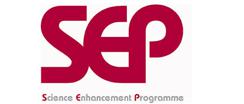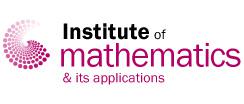Human lifestyle and non-communicable diseases
It is important for GCSE Biology students to be able to describe the relationship between health and disease and describe different types of diseses, this includes communicable and non-communicable diseases. Students also need to be able to describe the interaction between different types of disease. Students should know that many non-communicable diseases are caused by the interaction of a number of factors and that this is particularly true of lifestyle factors in relation to cardiovascular diseases. Students need to be able to explain the effect of lifestyle factors, including exercise, diet , alcohol and smoking on the incidence of non-communicable diseases at local , national and global levels. They should also be able to evaluate some different treatments for cardiovascular diseases.
This is a familiar topic for students and often students use inaccurate and unscientific terminology. In delivery this topic it is important to ensure that accurate scientific terminology is always used, so always correct students for using terms such as "bad food" Ensure that students are able to give detailed explanations about areas such as balanced diet. Similarly references to "drinking" as being a lifestyle factor that can cause disease is not accurate scientific terminology, ensure students refer to alcohol and that they can explain the potential effect on body systems. For this topic it is important that students understand the underlying physiology in terms lifestyle factors and not just list possible harmful factors
A misconception often seen within this topic area is in relation to the notion of "fitness" with students often noting that the fitter a person is the higher their heart rate. Also students don't always appreciate that having one particular disease or condition can be the result of or lead to other conditions. For example the fact that blindness can result from high blood pressure, which can be as a result of diabetes.
Whilst this list provides a source of information and ideas for experimental work, it is important to note that recommendations can date very quickly. Do NOT follow suggestions which conflict with current advice from CLEAPSS, SSERC or recent safety guides. eLibrary users are responsible for ensuring that any activity, including practical work, which they carry out is consistent with current regulations related to Health and Safety and that they carry an appropriate risk assessment. Further information is provided in our Health and Safety guidance.
Preventing Heart Disease
Although these materials are quite old, they do contain some useful activities. The first to consider is Task 2, found on sheets 6 and 7. Students are given information about factors that cause heart disease. Questions then ask them to highlight different sections of relevant information. This activity reinforces work on the heart and also allows students to practice skills in identifying key facts. It is worth stressing that this is important when tackling examination questions where they may need to interpret information they are provided with.
Other activities in the materials look at surveying people’s lifestyles and then designing a health education campaign. It can be used to develop skills in collaboration and the collection and interpretation of data, but consideration will need to be given to whether it is appropriate for students to be surveying individuals lifestyles and a group of "willing" volunteers may be required, who do not necessary have to tell the truth.
Blood Pressure *suitable for home teaching*
This Catalyst article is about fainting and how it can be the result of a sudden drop in blood pressure, which is often part of a shock reaction. Maintaining blood pressure is an important part of keeping the human body in balance. This article examines hypertension, living with high blood pressure, and the relationship between blood pressure and the kidneys.
There are a number of ways in which this article could be used, it could simply be a reading exercise for students, it would be possible for teachers to ask a number of questions related to this article to be used as self-study/homework, alternatively students could be asked to use the information in the article to produce a flow diagram to show how blood pressure is maintained.
There are many ways to make effective use of Catalyst articles such as this. A booklet has been produced which provides ideas on how Catalyst articles can be used with students and includes six exemplar activities. This booklet can be accessed at: https://www.stem.org.uk/elibrary/resource/27308
Keeping hearts pumping
This resource is a Mathematics matter case study, however the physiology discussed within the case study relates directly to this topic area in GCSE Biology and therefore provides a great resource for Science and Maths departments to use jointly.
Within the article are references to the incidence of cardiovascular disease at a national level , as well as factors that contribute to cardiovascular disease and the underlying physiology. The maths within the article is a discussion about how "modelling" can be used to help diagnose and potentially treat cardiovascular disease.
The article could be used as reading activity for GCSE Biology students, biology and maths teachers could add a few questions to test understanding from the article, or the article could form the basis for further student research into the treatment of cardiovascular diseases
Healthy Behaviour
This resource and Princeton USA: Can You Really Be a Burger Addict? provide an alternative approach to the delivery of this topic area through the vehicle of a debate. This resource provides information, further reading and web links on the topic of promoting healthy behaviour. The topic of the debate being: "Should economic incentives be used to promote healthy behaviour"
The Systems Physiology of Exercise *suitable for home teaching*
This Catalyst article looks at the effect exercise has on the body. As with all Catalyst articles there are a variety of ways in which this article could be used to develop understanding of this topic area. It would be possible to develop a worksheet/series of questions to go with this article, so students could read through the article once,then using the worksheet they could work through the article in more detail, building up a complete understanding.
Princeton USA: Can You Really Be a Burger Addict?
This resource and the Healthy Behaviour resource provide an alternative approach to the delivery of this topic area through the vehicle of a debate. This resource from Planet Science highlights the problems of fast foods and obesity to students.
The stimulus is an American court case where a 56 year old man with diabetes and two heart attacks sued several fast food chains claiming they were responsible for his illnesses. Some scientists believe eating fast food can become an addiction.
Students examine the issue by setting up a role play and debate based on the court case between fast food chains and a group of people with food addictions, followed by a newspaper article. There are also additional activities linked to this resource including designing a healthy eating poster, a practical to find out the energy content of different burgers and exploration of food habits in different cultures.
Fighting Fit *suitable for home teaching*
This Catalyst article looks at how exercise affects our immunity and susceptibility to infection. Recent research indicates that a person's level of physical activity affects their immune function, influencing their risk of respiratory tract infections such as a cold. Whereas moderate levels of regular exercise seem to reduce our susceptibility to illness, long hard bouts of exercise and periods of intensified training appear to have the opposite effect, and put athletes at increased risk of colds and flu.
The article would be a good homework activity: following initial discussion in class about the benefits of exercise, students could read the article and consider what is the research in the article suggesting? is it valid? are there other factors to consider? the discussion could then be revisited at the start of the next lesson.
Observing the effect of exercise on the human body
This is a classic school biology experiment. Measuring the effect of exercise on heart rate and recovery. Full experimental details are included. This type of activity is useful but can also be quite personal. Some students may feel uncomfortable taking exercise in front of their peers, especially if they are perceived to be unfit. Similarly, some students may suffer from conditions such as asthma and be sensitive about exercise. A risk assessment relevant to the class (not just a generic one) is clearly warranted.
The materials include a useful students briefing and consent form. It is wise to issue this the lesson before and have students show it to their parents / guardians and get it signed before the lesson.
The experiment can be enhanced by the use of ICT. If possible, use a data logger with a heart rate monitor and a pulse oximeter. Blood pressure measurements can be taken with inexpensive monitors available from pharmacists or even some supermarkets. It is useful to take reliable measurements of resting levels before the exercise begins. It is worth taking measurements for 10 to 15 minutes after exercise has stopped. Sometimes it is possible to see a temporary dip below resting levels as the body ‘overshoots’ due to negative feedback.





